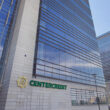Investors withdrew a record €6.2 billion ($6.7 billion) from the European Union’s top sustainable fund class in the three months ending June 30, marking the third consecutive quarter of outflows, according to Morningstar Inc. data. These funds, registered as Article 9, are committed to sustainable investment and must meet the EU’s strictest ESG disclosure requirements. Alternatively, funds can register under the lighter green category of Article 8 or have no sustainability claims as in Article 6.
While there were significant withdrawals from Article 9 funds, Article 8 funds saw a net inflow of €26 billion ($28.2 billion) in the second quarter, as reported by Morningstar. During the same period, €64 billion ($69.5 billion) flowed into EU-based funds without any ESG goals.
The EU fund market is undergoing a “complete reshaping” due to evolving regulations, said Hortense Bioy, head of sustainable investing research at Morningstar Sustainalytics, as reported by Bloomberg. Although Article 8 funds are beginning to recover, Article 9 funds face a much bleaker outlook, she noted.
Meanwhile, 30 funds categorised under Article 8 and 9 have removed ESG-related terms from their names this year, according to Morningstar. This follows new guidelines issued by ESMA in May aimed at preventing misleading marketing and greenwashing. A Morningstar Sustainalytics report earlier predicted potential divestments of up to $40 billion due to the ESG fund naming regulation.
The EU’s Sustainable Finance Disclosure Regulation (SFDR), which classifies funds as Article 6, 8, or 9, has been in effect since March 2021. However, it has faced criticism for confusing language and insufficient definitions. The regulation is currently under review.
Last month, the European Banking Authority, the European Securities and Markets Authority, and the European Insurance and Occupational Pensions Authority recommended a complete overhaul of the SFDR, including replacing the Article 8 and 9 categories. The existing framework has “undermined the intended goal of the disclosures and created confusion for investors,” the groups stated in a submission to the European Commission.
While it may take years for a revised regulation to be implemented, the anticipated removal of the Article 8 and 9 designations is already influencing the EU market, Bioy said.
Fixed income is the only asset class that has seen inflows over the past five quarters for both Article 8 and 9 funds, as investors seek steady returns amid historically high global interest rates. However, equity funds led second-quarter inflows, with Mercer’s Passive Global Equity CCF Fund (Ticker MEPGEZ1 ID), which focuses on companies with strong ESG practices, attracting €2.5 billion ($2.71 billion).















